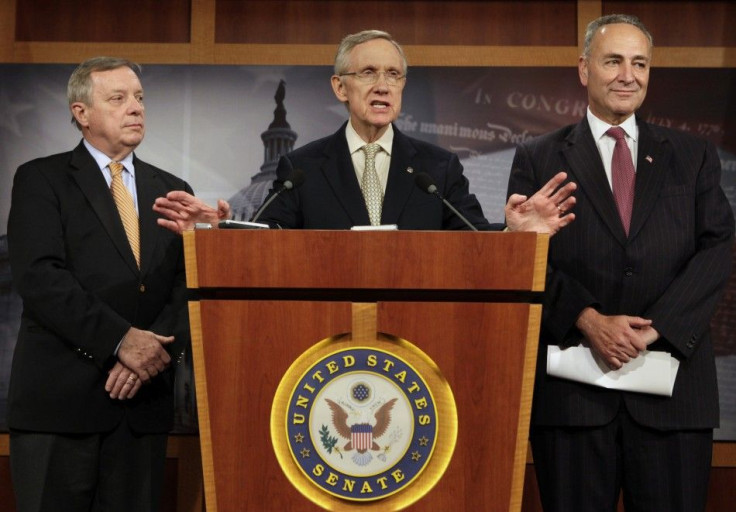Senate Democrats Reject House GOP Funding Bill; Government Shutdown Risk Increases

The Democratic-led Senate Friday, as expected, made short work of rejecting a House GOP-authored, stop-gap funding bill, 59 to 36, thus increasing the likelihood of a U.S. Government shutdown.
Further, as of last Friday afternoon in Washington it was unclear what the roadmap to stalemate resolution would look like. The current resolution to keep the U.S. Government open expires Sept. 30, one day before the federal government's new fiscal year begins Oct. 1.
The House has left town for a week's recess; the Senate is expected to take up the stop-gap funding issue again on Monday.
House Passes Legislation That Can't Pass the Senate
White House Spokesman Jay Carney said the House GOP bill was not exactly the most efficient use of taxpayer time on Capitol Hill:
The House Republicans once again passed something that they know can't pass the Senate and therefore can't become law, which is a perfect indication, Carney said, The New York Times reported Friday, that the fever hasn't broken.
The GOP bill would have provided $3.7 billion for disaster relief, much less than the $6.9 billion Democratic Senate version. The GOP bill also called for cuts in solar programs -- items which are non-starters in the Democratic-controlled Senate.
Political/Public Policy Analysis: This is third time this year that the Republican and Democratic parties have clashed over a budget bill that's crucial for the continuance of U.S. Government operations.
Further, the pattern of the conservative Tea Party-led Republican Party is obvious: use brinkmanship on every piece of legislation for funding the party opposes, threaten the nation with a U.S. Government shutdown, then try to extract compromises to achieve the party's short-term, partisan interests.
In other words, it appears the Tea Party-led GOP has permanently put the interest of its political base ahead of the national interest and the societal interest - even if doing so harms the nation. (The Tea Party faction nearly triggered a U.S. Government default in the summer, in the granddaddy of all brinkmanship moves.) The Tea Party's tactic is irresponsible, reckless, counter-productive and is harming the nation - and definitely not what American voters wanted when they returned the GOP to power in the House in the 2010 election: voters elected the GOP to create jobs.
Senate Democrats were hoping that House Republicans would move closer to the center in the latest vote; instead they moved closer to former President Herbert Hoover.
Hence, the risk barometer, on a scale of 0 to 100 percent, of the likelihood of a U.S. Government shutdown has risn to 35 percent on Friday night, 5 percentage points higher than Friday at mid-day
.
© Copyright IBTimes 2024. All rights reserved.





















